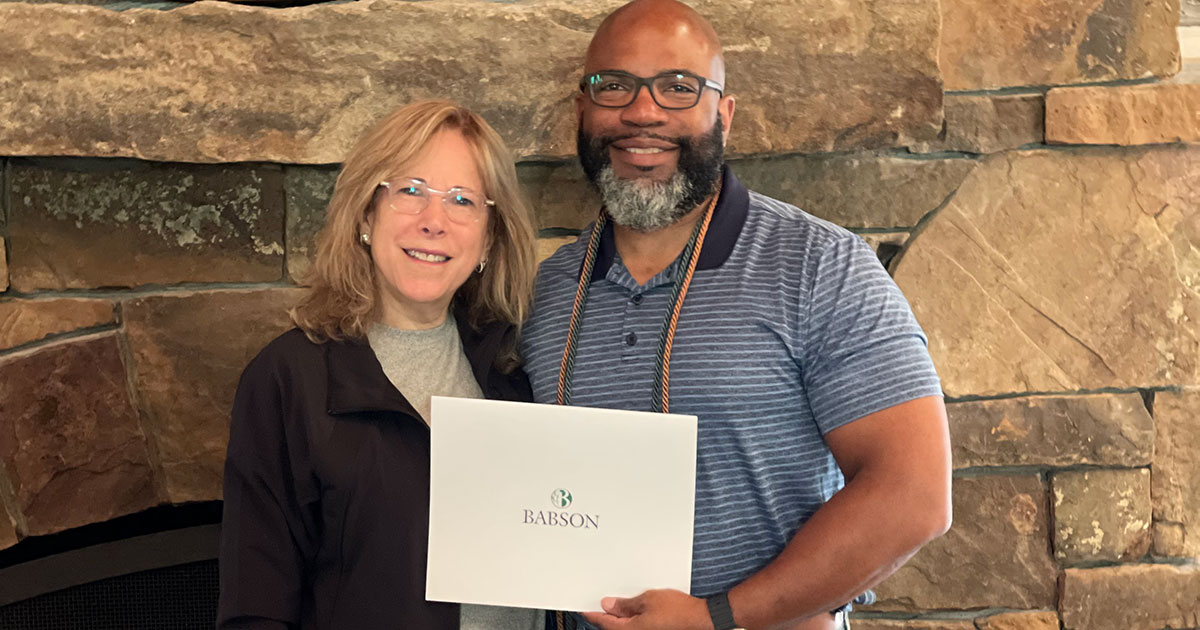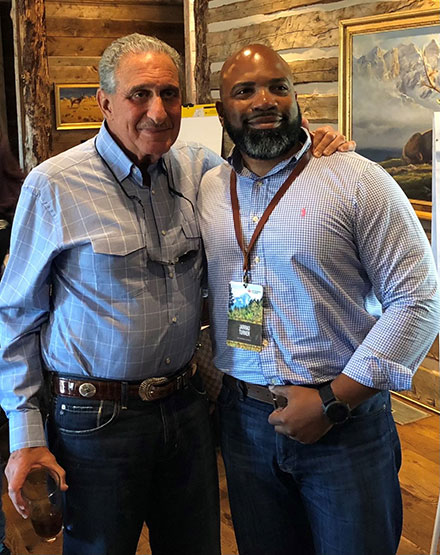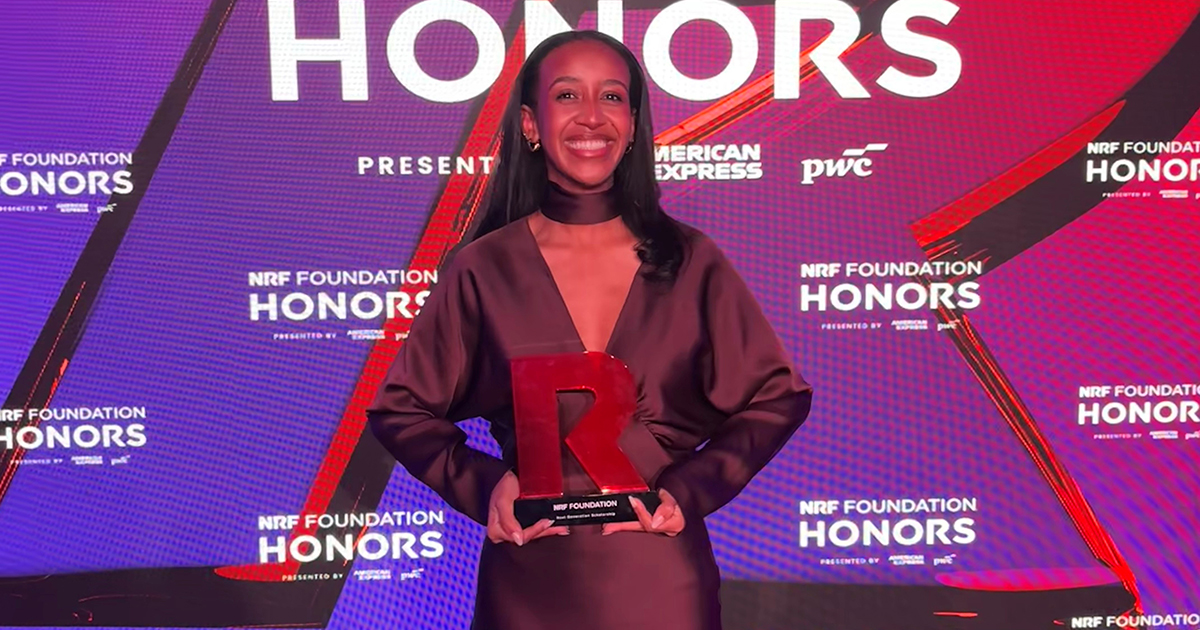How a Babson Program Helped Inspire an Army Veteran to Make a Bigger Impact

For Jarrad Turner, the well-being of veterans is a personal issue.
He has seen them struggle in their post-military lives, and as a veteran himself, he has experienced those struggles firsthand. Turner spent 10 years in the Army, a staff sergeant who served as a combat medic during two tours of duty in Iraq before injuries suffered in an attack with an improvised explosive cut short his military career.
Since leaving the Army, Turner has centered his career around his fellow veterans, working at various nonprofits through the years. “My life depends on my brother when I’m in the service,” he says. “Just because I took off the uniform doesn’t mean that I don’t have an oath to maintain.”
This service to veterans has been a defining purpose of Turner’s life, but then he traveled to a place a long way from his native Atlanta—Montana’s West Creek Ranch—and there, among the beautiful landscape and big sky around him, he began to rethink what that service looks like.
At West Creek, Turner took a Babson College executive certificate program, and he also had a fateful encounter with a notable Babson alumnus. Those experiences left him with a question: To help his fellow veterans, what is the best way to make an impact?
Building Resiliency
Located near Yellowstone National Park, West Creek is a 6,600-acre working ranch that’s owned by the Arthur M. Blank Family Foundation. Every summer, this picturesque place is where Babson holds its certificate program, Nonprofit Entrepreneurial Leadership, which seeks to empower leaders such as Turner with Entrepreneurial Thought & Action®, so they can develop solutions to important social issues.
A goal of the program is to make sure that nonprofits are resilient, says Cheryl Kiser, the leader of Babson’s certificate program. Nonprofits are encouraged to look at their business models and partnerships and see how they can strengthen their organizations, so they aren’t so fragile and dependent on outside funding.
“We are hoping to build your capacity to be sustainable and durable over time,” says Kiser, the executive director of Babson’s Institute for Social Innovation. “We are trying to get people to be great entrepreneurial leaders and expand their notion of where their business model can take them.”
A Look at Leadership

When he came to West Creek, Turner served as a vice president at The Warrior Alliance, a nonprofit dedicated to helping veterans to receive the support and resources they need to navigate civilian life. Before The Warrior Alliance, he worked for a number of other veterans’ organizations, including the Veterans Administration, Disabled American Veterans, and Wounded Warrior Project, as well as a veteran-owned IT business.
Additionally, he serves as a board member and participates in fundraising runs for the Shephard Center, a rehabilitation facility that he credits with helping him heal from wounds that aren’t easy to see. Following the improvised explosive attack, Turner suffered multiple injuries that required many surgeries on his shoulder, elbow, and jaw, but his mental ailments took longer to heal than his physical ones. A traumatic brain injury left him with severe vertigo, light sensitivity, and constant headaches. “You can’t see my brain injury,” he says. “You never know what a person has to carry.”
During Babson’s program at West Creek, Turner did a deep dive on leadership. He reflected on the ways he can make a difference with people and communities. “It is a place that is not only inspiring, but it is a place of encouragement,” he says. “It doesn’t just give you the academic aspect of leadership. It instills in you to never forget the humanity in others.”
He also saw how Kiser acts as a leader in a tough moment. While at West Creek, Turner learned that his father, Lafayette Turner, passed away. “My dad had the hardest work ethic I knew of any man,” he says. Turner was heartbroken, and he remembered the comfort that Kiser gave him. “She was such a welcoming soul,” he says. “She reinforced that as a leader one has to be authentic.”
A New Career Direction
Because the Blank Family Foundation supports The Warrior Alliance, Turner has been fortunate to have visited West Creek several times. On a previous visit, unconnected to the College’s certificate program, he still made a Babson connection.
On his way to eat breakfast one morning, Turner ran into Arthur M. Blank ’63, H’98, the Atlanta Falcons owner, co-founder of The Home Depot, and namesake of the Blank Family Foundation. The pair got to talking, and Blank began to ask pointed questions about funding, which can be limited and precarious for nonprofits.
What would happen, Blank wondered, if funding went away? What would Turner do? Those questions, echoed throughout the Babson certificate program as well, left an impression on the veteran. He thought about the course of his career, about being so dependent on the fickleness of funding. “He planted a seed,” Turner said. “I have a higher responsibility. I have to do more. That’s what I took away from that.”
“My life depends on my brother when I’m in the service. Just because I took off the uniform doesn’t mean that I don’t have an oath to maintain.”
Jarrad Turner, CEO of Veterans Technology Solutions
The lessons from Babson’s program, as well as the breakfast conversation with Blank, stayed with Turner, who eventually decided to take his career in a new direction. Leaving The Warrior Alliance, he became CEO of Veterans Technology Solutions, a growing veteran-owned IT company started in 2020.
While nonprofits can serve a critical need, Turner felt he could make a stronger difference in veterans’ lives by helping to build a business. “The biggest thing I can do to influence the world of veterans is to give them jobs, to give them careers,” he says. “With a business, we can impact society.”
With his business, Kiser says Turner is creating an impact that is resilient and not reliant on outside support. “Out of his work, he realized he could start something of value that could be sustainable over time,” she says.
Turner realizes that growing a venture is challenging, but with each position the company adds, that’s another veteran it can hire. “Yes, it might be challenging. I know this is the lane I am supposed to be in,” he says. “I have the right team. It’s now time to do what we have to do.”




